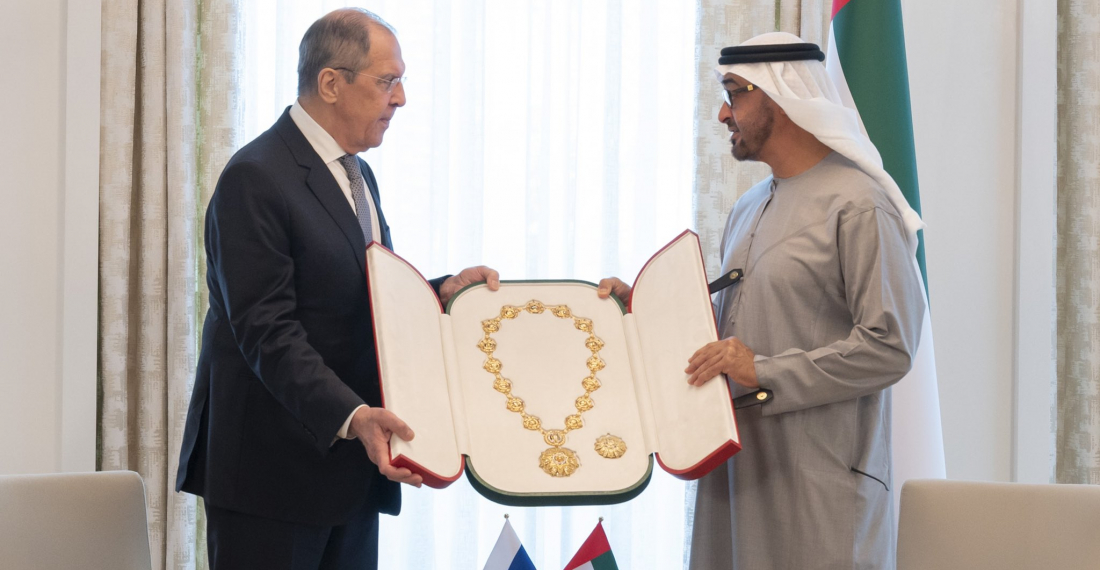Russia’s foreign minister, Sergey Lavrov, has wrapped up his tour of three Gulf countries after meeting his counterparts in Saudi Arabia, UAE and Qatar. In various press appearances with his local counterparts Lavrov appeared upbeat on the future of relations between Russia and the Gulf countries, but there was not much detail as to how this can happen in substance.
The visit has been characterised by many local observers as a Russian capitalisation on the poor approach of the US towards the region in the early days of the Biden administration. A range of issues from Gulf security to the stability of the global energy sector, to crises in Syria and Yemen, as well as the ever present issue of Iran dominated the discussions according to various local media sources. Gulf leaders gave Lavrov a warm welcome, not least perhaps to send a signal to Washington at a time when the incoming Biden administration is trying to put together its policy towards the region.
related content on commonspace.eu: Russians at the door
In Saudi Arabia, Lavrov stressed the need to co-ordinate positions with the Kingdom to avoid disturbances in the oil markets. Russia has been affected by the latest disturbance in the energy sector after the targeting of Ras Tanura port, which serves as a key global oil export hub. Lavrov said the current oil prices more or less reflect the balance between interests of oil producers and consumers and the balance should be maintained.
On Yemen, Lavrov recalled that the US removal of Houthis from the terrorists list is an indication that the group could be part of an inclusive peace process. Russia, along with the European Union, have condemned the escalation of attacks by the Houthis.
As for Syria, Lavrov used the trip to reiterate that a Syrian settlement requires a consensus between the regime and the opposition. The foreign ministers of Saudi Arabia and UAE expressed their wish for Syria to be allowed back in its Arab and regional sphere, but in Qatar the foreign minister appeared more reluctant.
The presence of the Turkish foreign minister in Doha during Lavrov’s visit signalled the rising importance of Turkey in the Middle East, even if Lavrov’s visit was clearly focused on a Russian-Gulf approach. Russia, Turkey and Qatar, however, appeared to agree on a format to discuss progress in the Syrian file.
Read their joint statement here
In Abu Dhabi, Lavrov said he hoped that Iran and US could return to the JCPOA. He believed that the US has an understanding on how to do this.
While the real goals behind Lavrov’s snap visit to the region remains unclear, voices from the Gulf suggested that relations with Russia will develop and the Gulf would play a bigger role in issues of priority for Russia in the Middle East.






